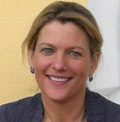
Dr Heidi Larson, of the London School of Hygiene and Tropical Medicine, an anthropologist specialising in public attitudes to immunisation, has called for a more sophisticated, dialogue-based approach to improving acceptance of vaccination.
Speaking at ‘EVM Day’ – an event hosted in Brussels by the European Vaccine Manufacturers – Dr Larson said that addressing the so-called ‘confidence gap’ would mean swapping the traditional instinct to broadcast facts about vaccine safety for a listening-based approach.
Read: Addressing public trust in vaccines
“Confidence issues with vaccines are often about more than safety. If you go all the way back to Jenner’s time, resistance arose from people who were against compulsory vaccination rather than specific ‘anti-vaccine’ concerns. There’s often an assumption that the concerns are based on safety but that is often not the case,” she said.
Dr Larson said that even where public concerns are not factually correct they should be addressed and she advised vaccine manufacturers to show more empathy when concerned members of the public question immunisation.
Read: ‘Internet influencing vaccination decisions’
She said the newspapers, television and websites can amplify or attenuate public concern about vaccination but cautioned against viewing the media as a homogenous entity.
“We have to understand the growing influence of social media, and also shouldn’t underestimate person-to-person communication.”
Dr Larson said work was underway to bring together experts from various disciplines in an effort to deepen understanding of the decision-making process that leads some parents to forego vaccines for their children.
Read: ‘Storytelling’ key to vaccination debate
Dr Larson’s talk was part of a panel discussion on public attitudes to immunisation, during which Peter O’Donnell, Associate Editor of the European Voice newspaper, suggested the supposed trust deficit in vaccines was overblown.
He dismissed the notion that the media have a role to play in communicating public health messages.
“We don’t have a role. We’re not there to do the work for you. You are one of a million interest groups who think their message is important one. If you want to broadcast a public health message then buy a radio spot.”
Read: Do vaccines get a bad press?
Public health stories must compete for space with news about politics and the economy, and must meet the same criteria of newsworthiness, he said, adding that he sees no particular ethical responsibility to pass on pro-vaccine health messages.
“There’s always more news, or comment or analysis than it’s possible to fit into any newspaper, magazine or TV programme,” Mr O’Donnell said.
He added that the H1N1 pandemic is the only major vaccine-related story he has covered in 15 years as a Brussels-based journalist writing about health.
“Although I was writing about it, I heard very little from people producing vaccines but a lot from those with concerns about vaccines or with an axe to grind. We very rarely hear form vaccine manufacturers – but if you really want to get something into the media you have to be proactive.”
Brendan Barnes, Director Health Policy and Corporate Responsibility at EFPIA, said one of the reasons that companies making medicines and vaccines overlook public outreach is that they presume the public sees their work as quintessentially positive.
“We think what we do is so great we don’t have to explain it,” he said, adding that industry and public health authorities will have to become more transparent and accept the views of non-experts.
Read: 20 Vaccine Facts





VaccinesToday (@VaccinesToday) (@VaccinesToday) (@VaccinesToday)
November 7th, 2011
Vaccine scepticism: ‘more than misplaced safety fears’ http://t.co/Qlzgac19 #vaxfax #vaccnies